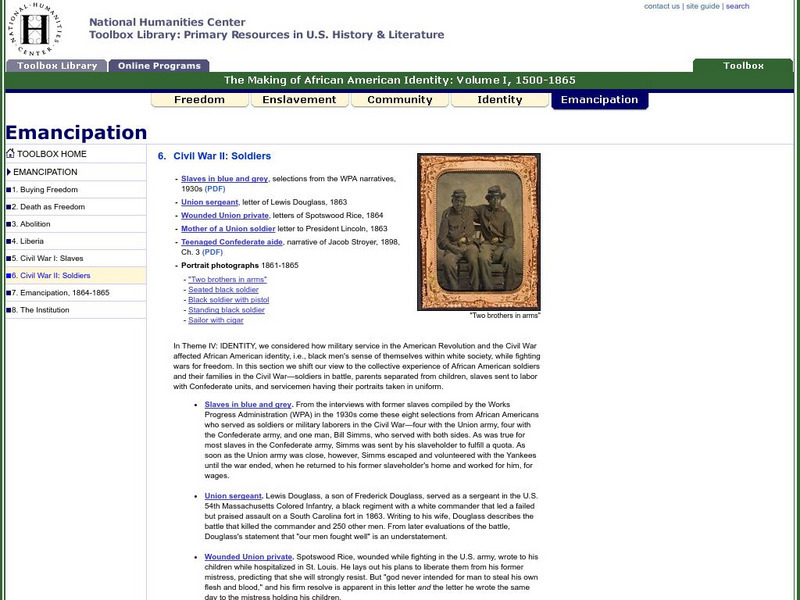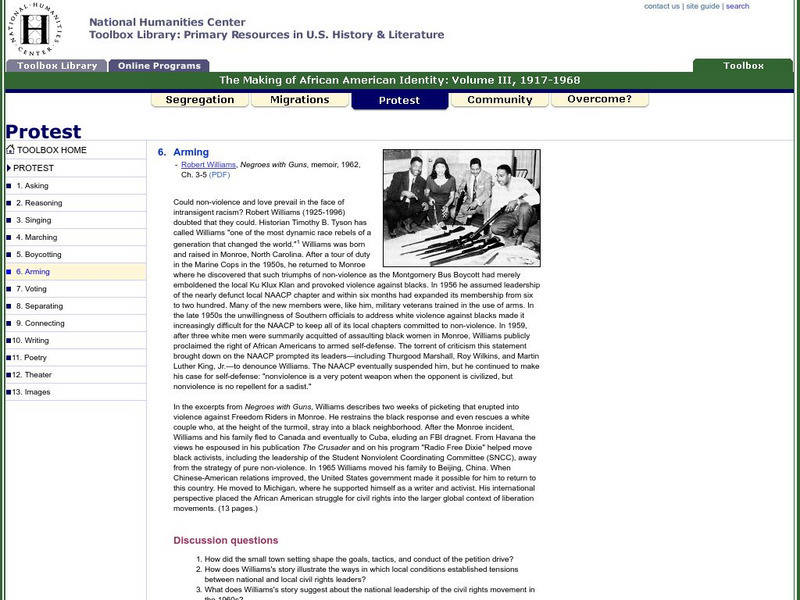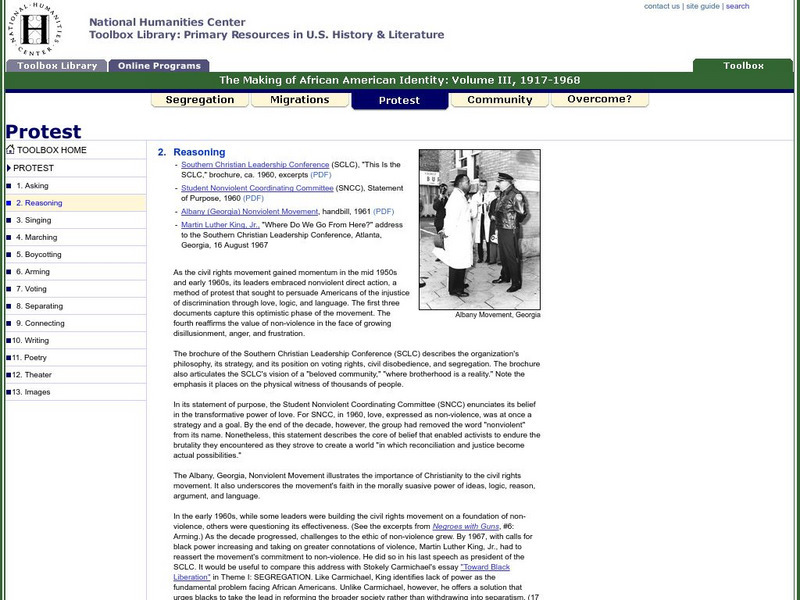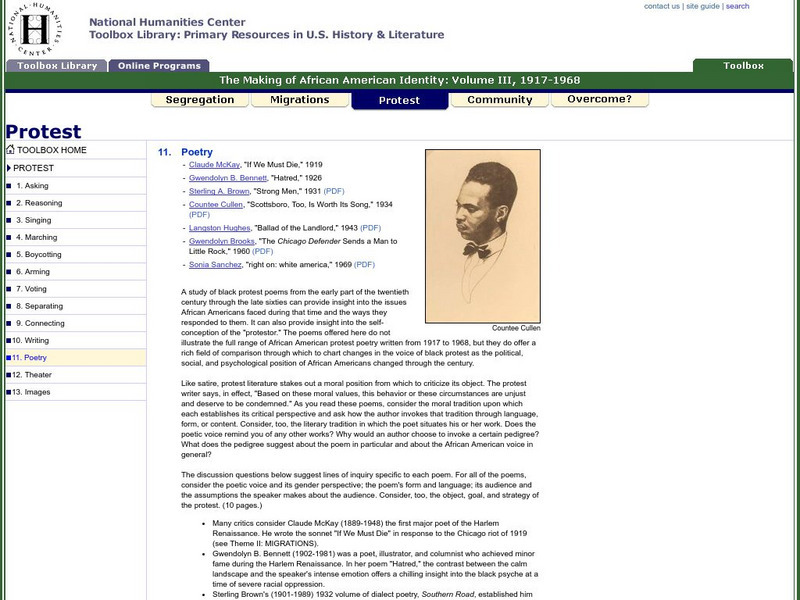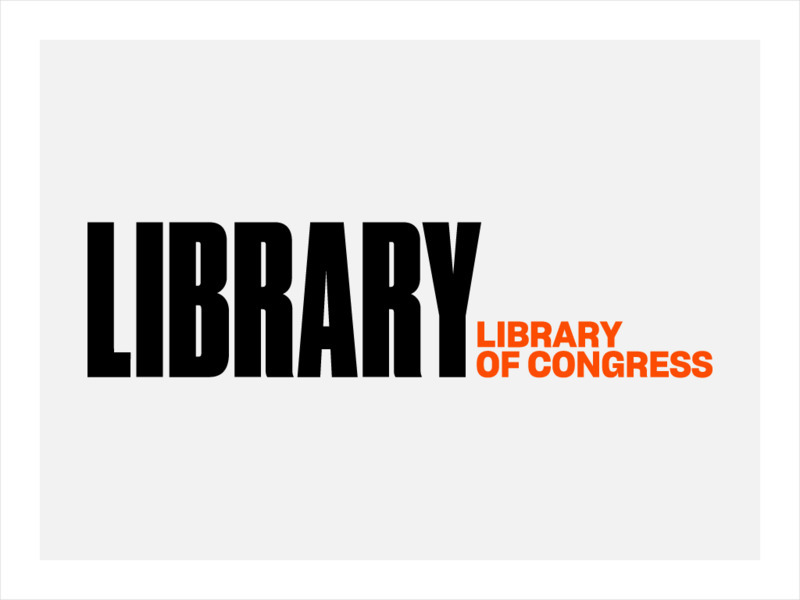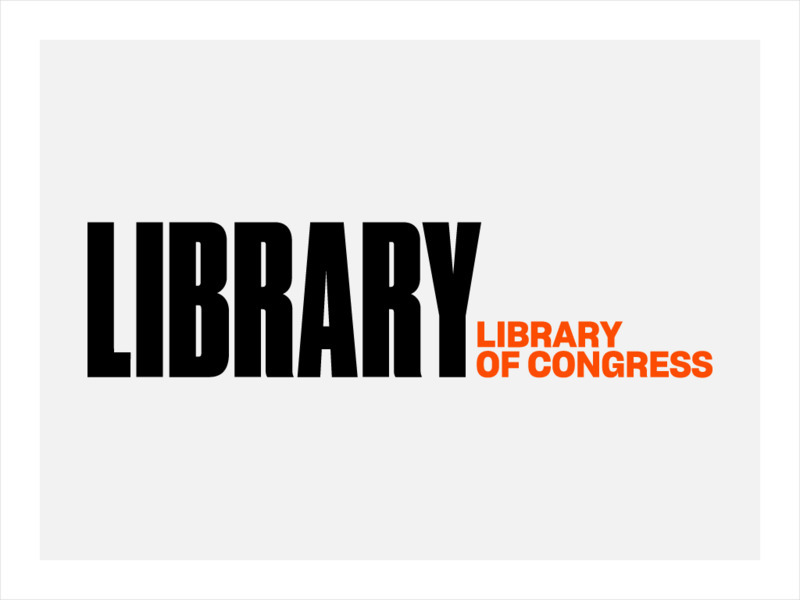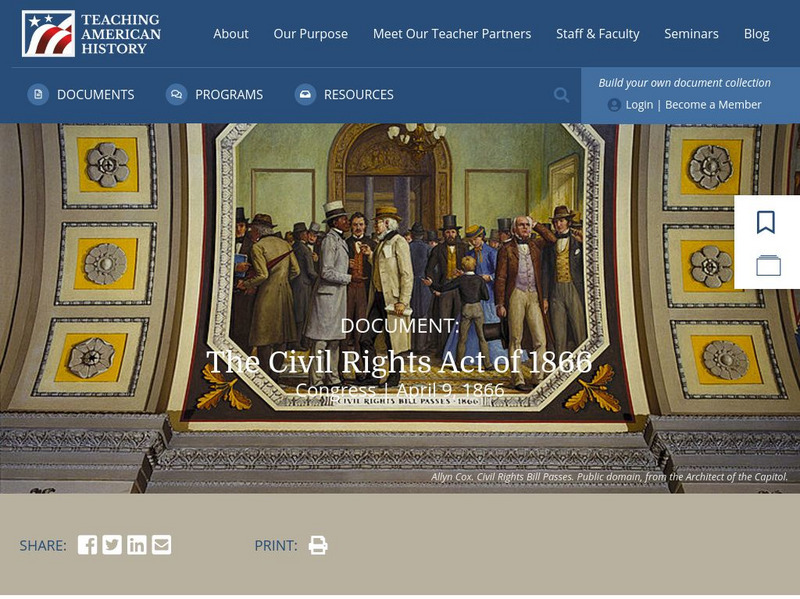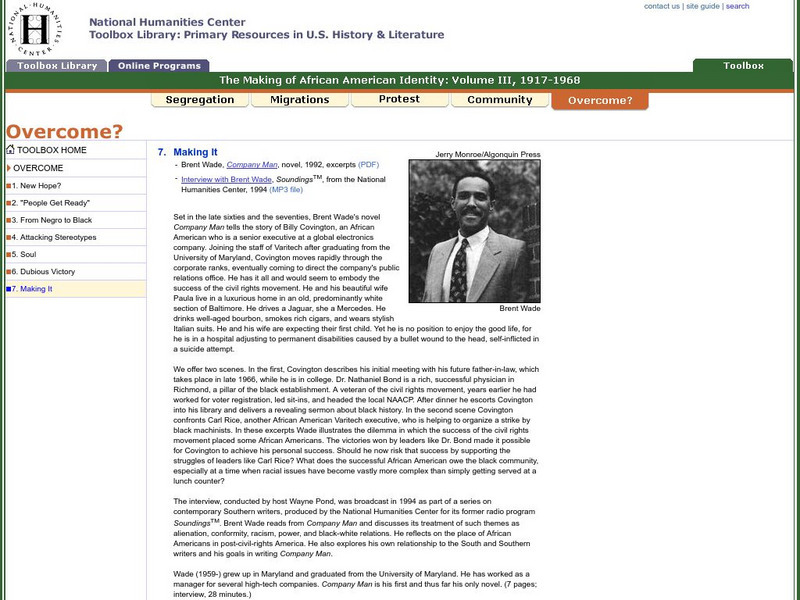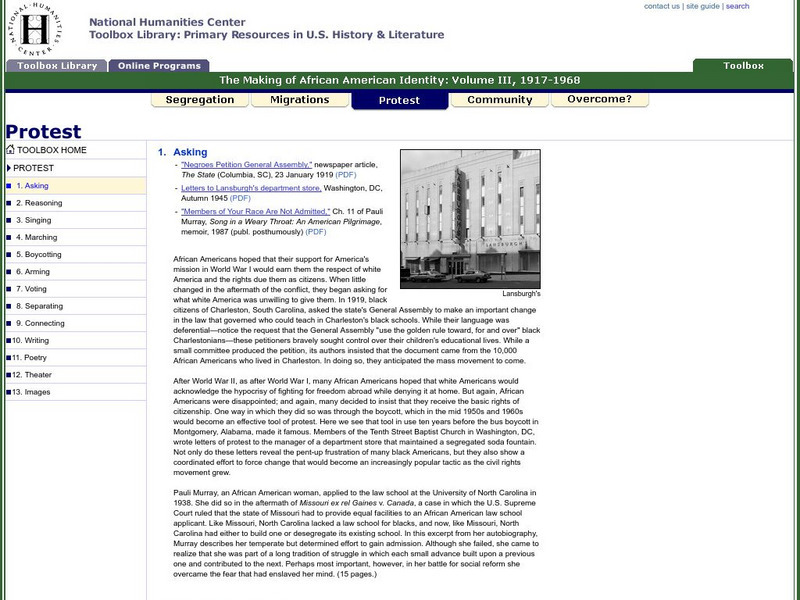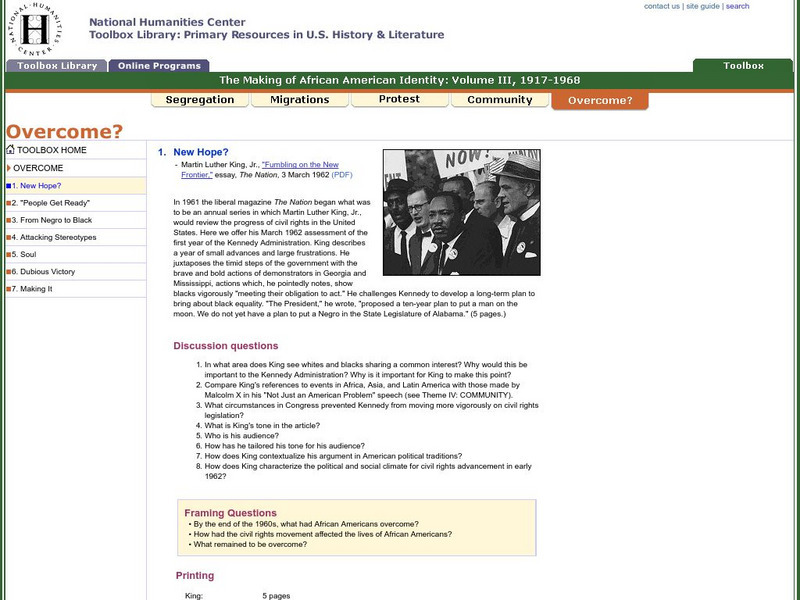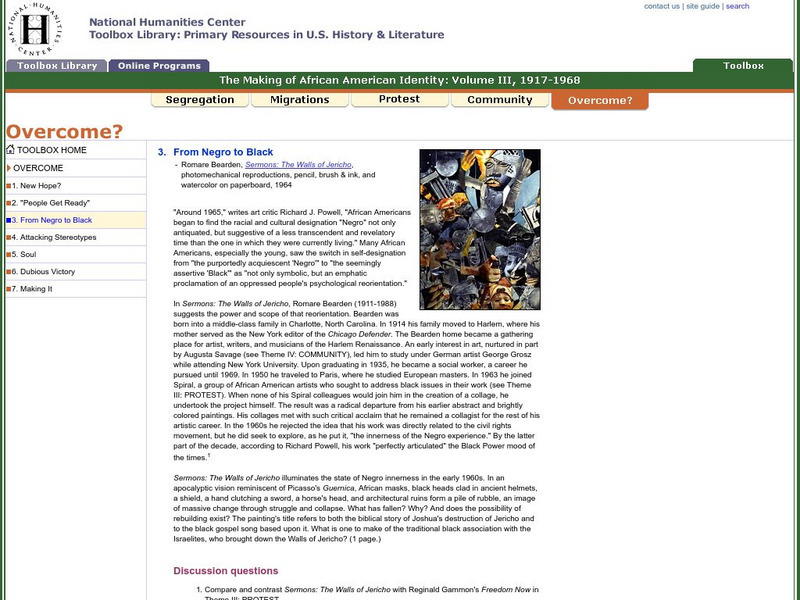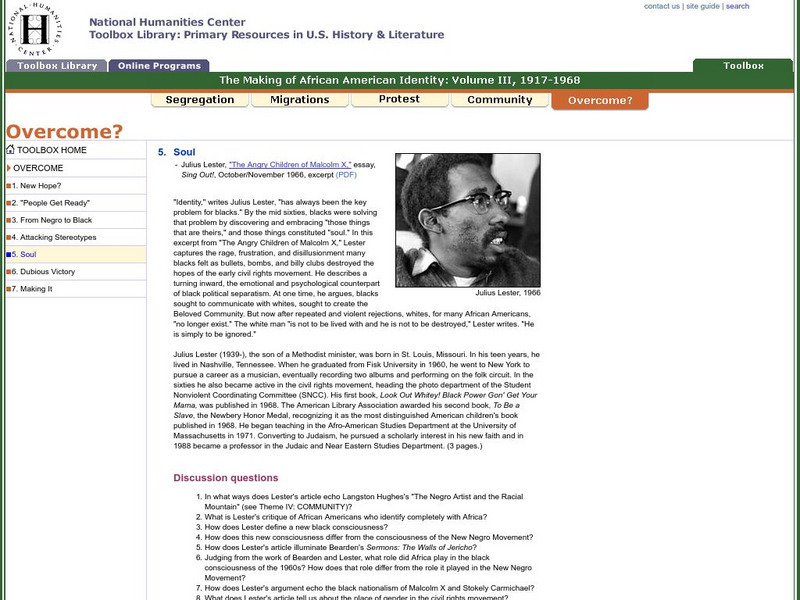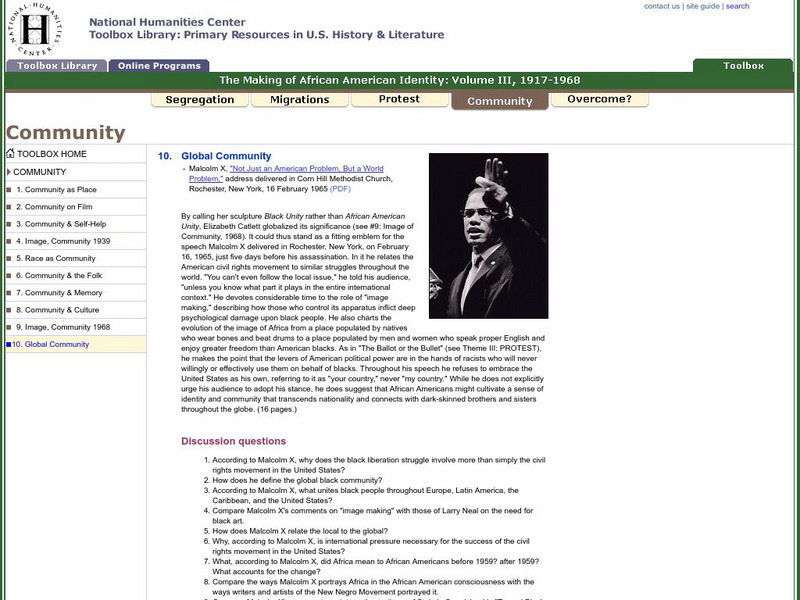National Humanities Center
National Humanities Center: Toolbox Library: Making of African American Identity: Volume Iii: Community
Series of 10 primary resources explores African American identity from 1917 to 1968, examining the changing notions of identity and affects on the definition of African American community.
National Humanities Center
National Humanities Center: Toolbox Library: Making of African American Identity: Volume Iii: 1917 1968: Overcome?
Primary resource material explores the outcome of civil rights protests and the Civil Rights Movement and examines what remains yet to overcome. Links to supplemental materials, discussions questions and notes.
National Humanities Center
National Humanities Center: Toolbox Library: African American Identity: Volume Iii, 1917 1968: Segregation
Series of nine primary resources on African American identity explores the concept of segregation and how it was experienced through the years 1917-1968. Inlcudes discussion questions, notes and links to supplemental resources.
PBS
Pbs: African American World History
Featuring an excerpt from a memoir written by Ruby Bridges telling of her experience as the first African American child to attend an all white elementary school in New Orleans in the year 1960.
PBS
Pbs Learning Media: Fannie Lou Hamer Civil Rights Movement in Rural Mississippi
A collection that uses primary sources to explore Fannie Lou Hamer and the civil rights movement in rural Mississippi.
National Humanities Center
National Humanities Center: Toolbox Library: Emancipation: Civil War Ii: Soldiers
Photographs of and letters from slaves and former slaves who fought for the Union or were forced to fight for the Confederacy during the Civil War.
National Humanities Center
National Humanities Center: Toolbox Library: Arming, Making of African American Identity: V. 3
This resource offers a memoir that examines the role of armed self-defense in the civil rights movement. An excerpt from the text "Negroes with Guns", by Robert Williams is made available here, describing his approach towards civil...
National Humanities Center
National Humanities Center: Toolbox Library: Reasoning, Making of African American Identity: V. 3
Brochures and a speech from the Southern Christian Leadership Conference describing the organization's philosophy, its strategy, and its position on voting rights, civil disobedience, and segregation.
National Humanities Center
National Humanities Center: Toolbox Library: Making of African American Identity: Old Timers, Newcomers
An editorial cartoon and a newspaper article illustrating the tensions between members of established African American communities in the North and Southern migrants. Links to both resources are provided within this site.
National Humanities Center
National Humanities Center: Toolbox Library: Poetry, Making of African American Identity: V. 3
This study of black protest poems from the early part of the twentieth century through the late sixties can provide insight into the issues African Americans faced during that time and the ways they responded to them. Works from seven...
National Humanities Center
National Humanities Center: Toolbox Library: Associations (I), Making of African American Identity: V. 2
Newspaper articles that illustrate how benevolent and charitable societies fostered racial solidarity among African Americans in late-nineteenth-century America are provided. Links to these articles can be found on the second page.
National Humanities Center
National Humanities Center: Toolbox Library: Citizenship, Making of African American Identity: V. 1
Public addresses, letters, and narratives about the absence of and the need for citizenship rights for African Americans. Links to resources used to lobby for equal rights are provided at the top of the page.
Library of Congress
Loc: Experiencing War: African Americans: Fighting Two Battles
Online personnel narratives by African American soldiers who participated in World War II.
National Humanities Center
National Humanities Center: Toolbox Library: Making of African American Identity: Volume Iii, 1917 1968: Protest
A collection of 13 primary resources with questions for discussion and links to supplemental material about the various forms of protest undertaken by African Americans in pursuit of civil rights and how it helped shape identity.
National Humanities Center
National Humanities Center: Toolbox Library: The Making of African American Identity: Vol I: 1500 1865: Emancipation
Primary source material on the how enslaved Africans envisioned and pursued freedom and how these ideas affected them after the Civil War.
Library of Congress
Loc: African American Odyssey: Free Blacks in Antebellum Period
A site that chronicles through documents the accomplishments of African-Americans, both slave and free, from colonial times through the Civil War.
Library of Congress
Loc: African American Sheet Music, 1850 1920
View 1,300 pieces of sheet music composed by and about African Americans between 1850-1920.
Teaching American History
Teaching American History: Document Library: Civil Rights Act of 1866
Read the complete text of the Civil Rights Act of 1866, which set out guarantees for citizenship in post-Civil War America as well as the punishments for those who tried to obstruct these guarantees.
National Humanities Center
National Humanities Center: Toolbox Library: Making It, Making of African American Identity: V. 3
Excerpts from a novel and an interview that illustrate where the success of the civil rights movement left some middle class African Americans. They explore the obstacles the civil rights movement had to overcome and the movement's...
National Humanities Center
National Humanities Center: Toolbox Library: Asking, Making of African American Identity: V. 3
Attempts by African Americans to petition for their civil rights are described within this resource. This include attempts by the black citizens of Charleston to ask for civil rights by petition rather than demand them with protest.
National Humanities Center
National Humanities Center: Toolbox Library: New Hope?, Making of African American Identity: V. 3
An article that critiques the early civil rights efforts of the Kennedy administration. It explores the obstacles the civil rights movement had to overcome and the movement's effect on the lives of African Americans.
National Humanities Center
National Humanities Center: Toolbox Library: From Negro to Black, Making of African American Identity: V. 3
A painting that expresses the darkening hopes of the civil rights movement. It explores the obstacles the civil rights movement had to overcome and the movement's effect on the lives of African Americans.
National Humanities Center
National Humanities Center: Toolbox Library: Soul, Making of African American Identity: V. 3
An article that expresses the late 1960s disillusionment of the civil rights movement. It explores the obstacles the civil rights movement had to overcome and the movement's affect on the lives of African Americans.
National Humanities Center
National Humanities Center: Toolbox Library: Global Community, Making of African American Identity: V. 3
On February 16, 1965, in Rochester, New York, Malcolm X delivered a speech that placed African American in a global black community. Just five days before his assassination, he relates the American civil rights movement to similar...





